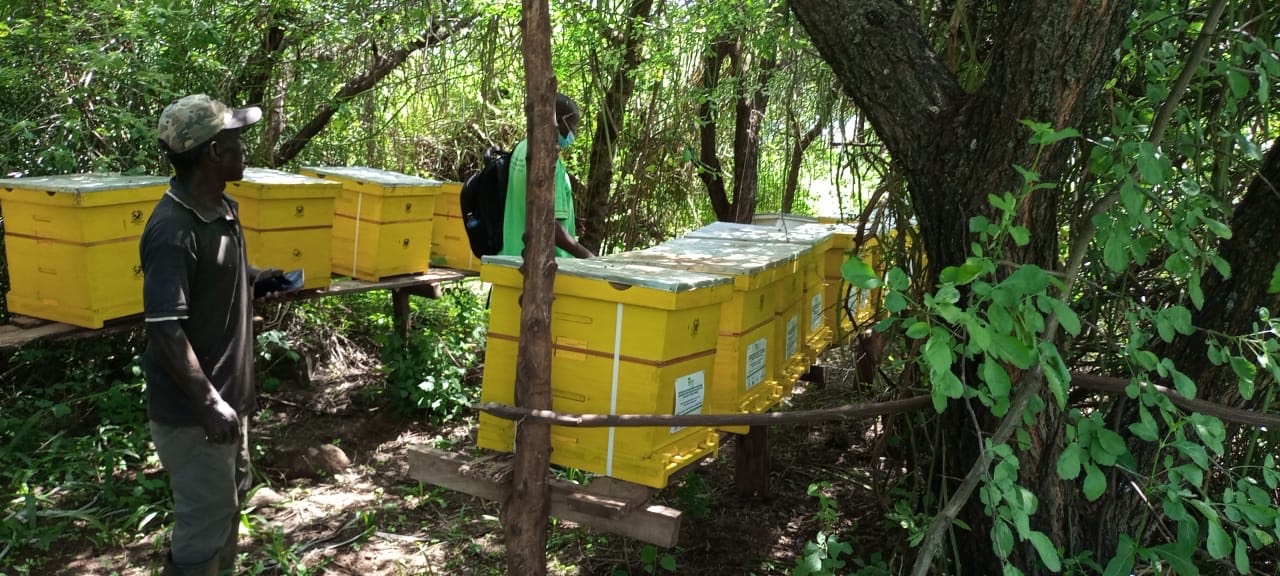
The Kambi ya Juu Women Group is one of the numerous beneficiaries of the project “Building Drought Resilience in Isiolo County through Sustainable Livelihoods”, which is carried out in Kenya. They operate in the field of beekeeping and thus have to deal with all the difficulties that selling honey brings about, especially when you don’t have the right means.
‘Marketing is the hardest task and no one wants to be tasked in selling honey after harvesting,’ said Irene, Kambi ya Juu Women Group chairlady. Usually, traditional marketing approach had been majorly used by Kambi ya Juu Women beekeepers in selling their honey products. Having no selling point, the group had to do door to door hawking, selling by roadside and sometimes gifting excess to close family members, while making on farm selling.

With low market coverage, it takes months for the women group to sell as small as 50kgs of honey and, furthermore, they experience price exploitations while selling their products, thus making honey production unprofitable venture. The motivation for the group members in beekeeping business had gnawed and some ‘started questioning the importance of beekeeping to them as women,’ recalls Irene.
This narrative turned splendidly when the group was selected as part of the Women in Income Generating Activities beneficiaries supported under the project “Building Drought Resilience in Isiolo County through Sustainable Livelihoods”, which is founded by the European Union and carried out by E4Impact Foundation, Vétérinaires Sans Frontières Suisse, Somirenec, WeWorld – GVC and Comitato Collaborazione Medica – CCM.
E4Impact Foundation, as an implementing partner, took the group through rigorous trainings on entreprneurship, value addition branding and marketing. The positive response and outcome from the group enabled them to be selected among the first bunch of groups’ product test in creating a digital platform with the aim of expanding the market base for Isiolo products. During that period Kambi ya juu women increased sales and price of honey per kg by 90% & 40% respectively.

With the digital platform, Kambi ya Juu Women Group can now sell their honey at the comfort of their homes. Despite being less defined by cultural practices as famine and care providers at most rural households, women in places like Isiolo have broken barriers to become champions in households and great contributors of the Isiolo economy.
Speaking during the Launch of E-Isiolo marketing platform, Madam Lucy, Chief Officer of the Group acknowledged the efforts made by Isiolo women and urged other entrepreneurs to utilize the platform in marketing their products, a move that will increase sales and money in pockets of Isiolo products.
Leonard Ekea
